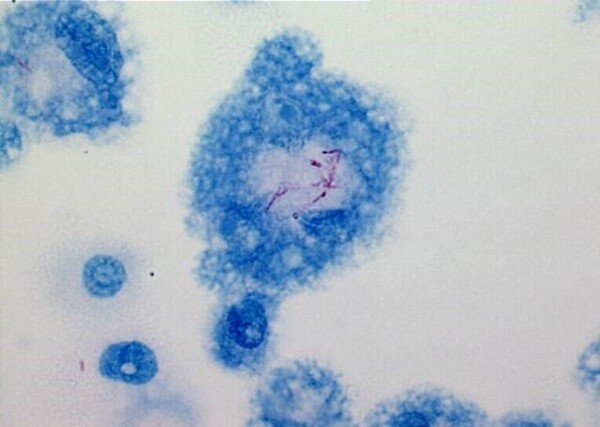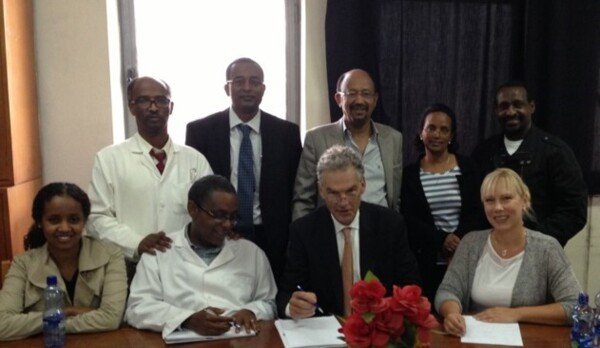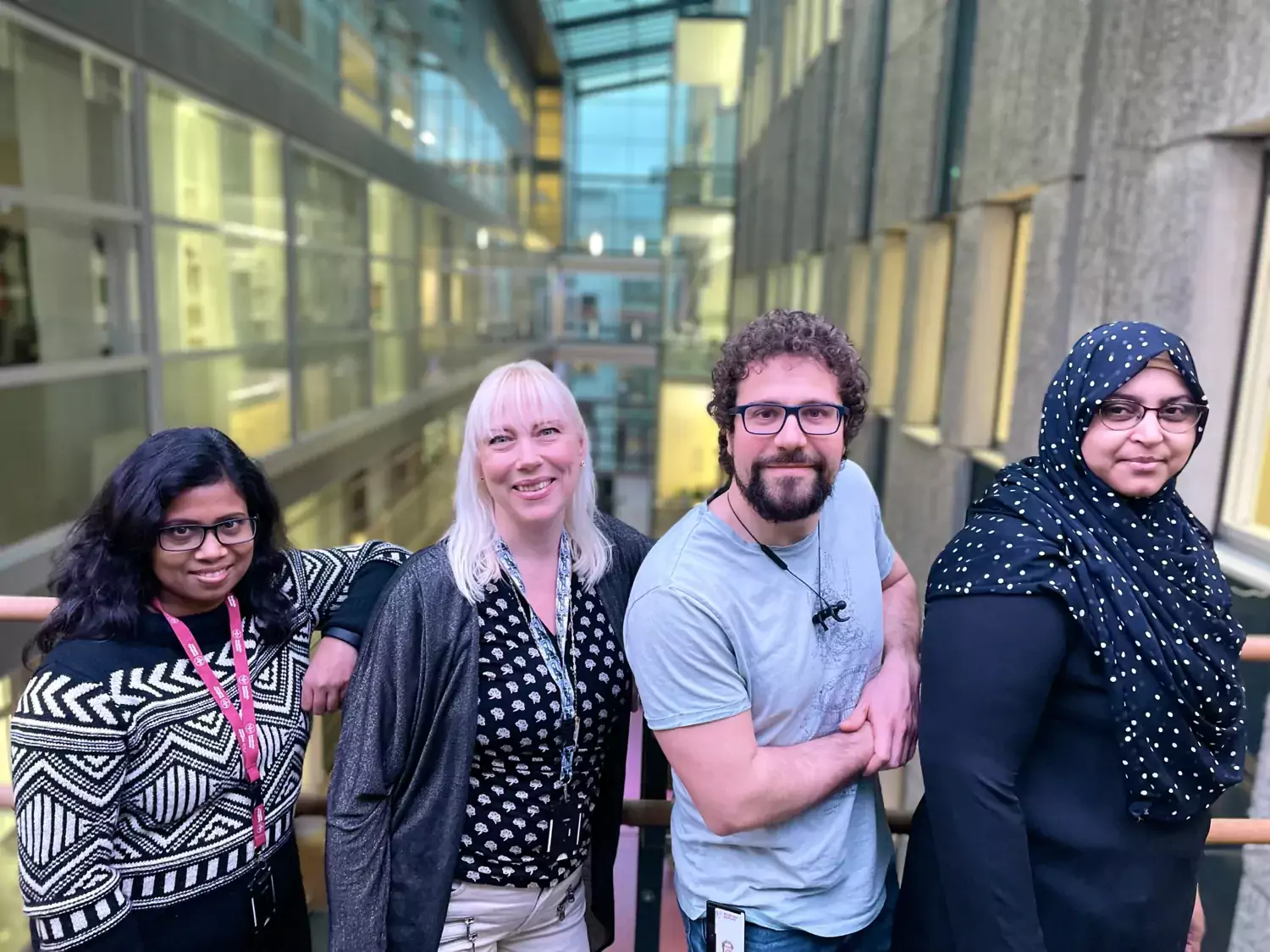The group is part of the Center for Infectious Medicine (CIM).
About our research
We study specific immune responses including the induction and regulation of antimicrobial effector functions in macrophages and T cells, particularly at the local site of Mtb infection. Integration of patient materials with well-defined cell and tissue models in vitro are used to explore pathogenic mechanisms of human TB and associated comorbidities such as HIV and type 2 diabetes.
This translational approach aims to unravel specific cellular and molecular targets relevant for immune reconstitution in vivo. Here, compounds with immunomodulatory properties are used to discover novel host-directed therapies that could enhance immune cell function(s) and support conventional antibiotics in Mtb killing and/or growth control.
The overall purpose of our research is to promote the development of next-generation individualized treatment options for different groups of difficult-to-treat TB patients.

Tuberculosis
Tuberculosis (TB) is caused by Mycobacterium tuberculosis (Mtb) and continues to be one of the world-leading killers among infectious diseases; every second a person in the world is infected with Mtb and every 25 second a person dies from TB. Inadequate use of chemotherapy has resulted in resistance of Mtb to most known antibiotics and increased rates of multidrug-resistant TB (MDR-TB) with low treatment success rates is a growing global threat.
Similar to other serious bacterial infections, effective development of resistance to antibacterial drugs rapidly diminishes the pipeline of drug candidates with efficacy towards Mtb. Host-directed therapies target multiple immune pathways to enhance cure, while reducing disease severity, side effects and problems with drug-resistance. The importance of the immune response in TB control is highlighted by the increased risk of TB in primary immunodeficiencies, HIV infection and upon treatment with TNF-α inhibitors.
Keywords
tuberculosis, infection, immune responses, antimicrobial mechanisms, drug resistance, host-directed therapy, global health
Key collaborations
Karolinska Institutet
Karolinska Institutet, Department of Laboratory Medicine (Labmed):
Assoc. Prof. Peter Bergman and Prof. Birgitta Agerberth.
Sweden
Linköping University, Department of Clinical and Experimental Medicine:
Prof. Maria Lerm and Assoc. prof. Thomas Schön
Public Health Agency of Sweden (PHAS):
Dr. Ramona Groenheit and Dr. Melles Haile

International
Addis Ababa University (AAU) and Black Lion University Hospital, Ethiopia:
Dr. Amsalu Bekele, Dr. Wondwossen Amogne, Dr. Endale Kassa and Prof. Getachew Aderaye
Armauer Hansen Research Institute (AHRI), Ethiopia:
Assoc. prof. Abdissa Alemseged (Scientific Director of AHRI) and Prof. Abraham Aseffa
International Centre for Diarrhoeal Disease Research (icddrb), Bangladesh:
PhD Rubhana Raqib
University College London (UCL), UK:
Dr. Gabriele Pollara

